CALL TODAY 646-846-1136 | EMAIL
Surgical Experts Dedicated to Improving Lives
At Lenox Hill Minimally Invasive Surgery PLLC, Dr. Valery Dronsky and his staff of medical professionals provide compassionate care with the highest ethical & professional standards. In our state of the art facility, we offer surgical services using only the most cutting edge and current procedures and treatments. We specialize in general surgery, including extensive experience in performing hernia repair surgery. Our expertise is in minimally invasive surgery and robotic surgery. Minimally invasive and robotic surgery often allow patients to experience easier recovery than traditional open surgery. They also allow for more precise and less traumatic surgery. When robotic and minimally invasive surgery is not an option, we are also skilled and experienced in traditional open surgical procedures.
Dr. Dronsky is an experienced and highly skilled surgeon having undergone extensive training in school, residency and fellowships. He practices medicine with ethical behavior, compassion and superb bedside manner. In the operating room he exhibits precision mechanical abilities, analytical thinking and the ability to visualize tissue in three dimensions. These innate and learned skills allow Dr. Dronsky to be one of the most dexterous and skilled professionals in New York City and the Country.
Call us: 646-846-1136
PATIENT TESTIMONIALS
Recent Awards
We are honored and deeply appreciative to have consistently received prestigious awards and recognition year after year, establishing us as one of New York’s foremost hospitals for a wide range of general surgeries, safety measures, specialized procedures, and overall excellence in healthcare. At Lenox Hill Minimally Invasive Surgery, our unwavering commitment lies in delivering exceptional care and unwavering support to our patients, guaranteeing their safety and successful recovery throughout their entire surgical experience.
Hospital Quality Awards
 America’s 50 Best Hospitals Award™ (2023, 2022)
America’s 50 Best Hospitals Award™ (2023, 2022)
Top 1% in the nation for providing the highest clinical quality year over year.

America’s 100 Best Hospitals Award™ (2021)
Top 2% in the nation for consistently delivering clinical quality year over year.

America’s 250 Best Hospitals Award™ (2023, 2022, 2021)
Top 5% in the nation for consistently delivering clinical quality.

Patient Safety Excellence Award™ (2023, 2022)
Top in the nation for providing excellence in patient safety by preventing infections, medical errors, and other preventable complications.
Specialty Clinical Quality Awards

America’s 100 Best Hospitals for Cardiac Care Award™ (2023, 2022, 2021, 2020, 2019)
Superior clinical outcomes in heart bypass surgery, coronary interventional procedures, heart attack treatment, heart failure treatment, and heart valve surgery.

America’s 100 Best Hospitals for Coronary Intervention Award™ (2023, 2022, 2021, 2020, 2019)
Superior clinical outcomes in coronary intervention procedures (angioplasty with stent).

America’s 100 Best Hospitals for Prostate Surgery Award™ (2023, 2022, 2021)
Superior clinical outcomes in prostate removal surgery and transurethral resection of the prostate.
Click to see all of our Healthgrades best doctors awards
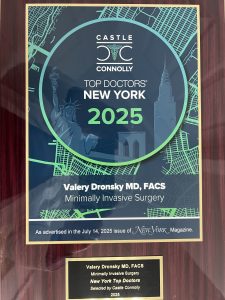
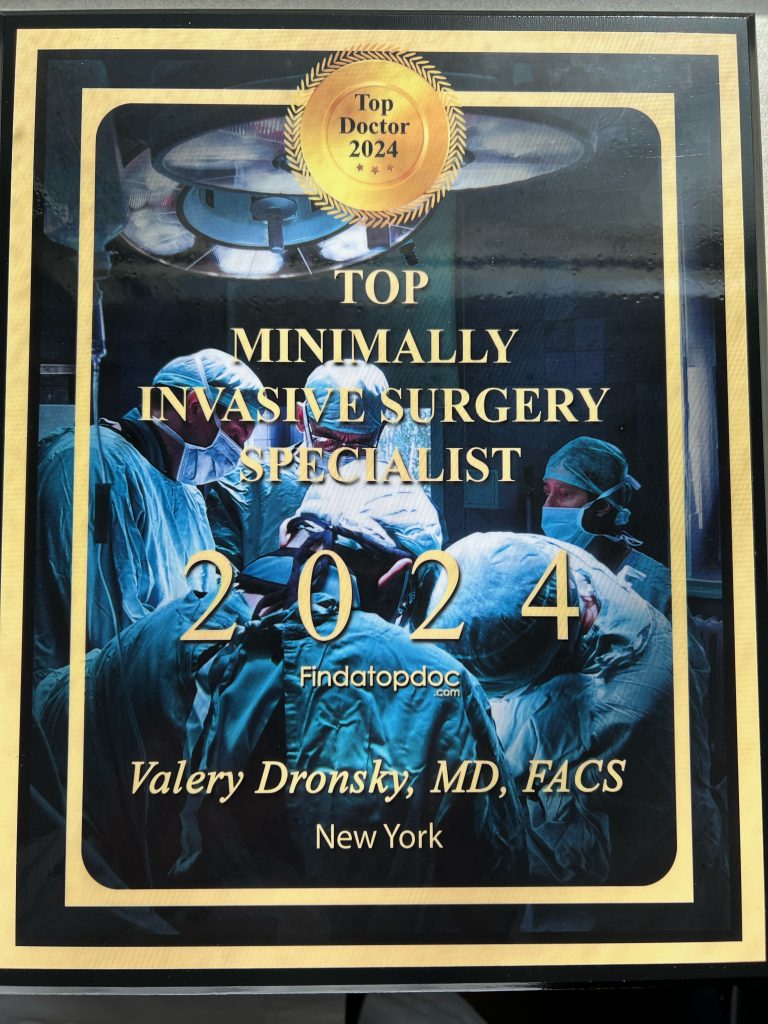
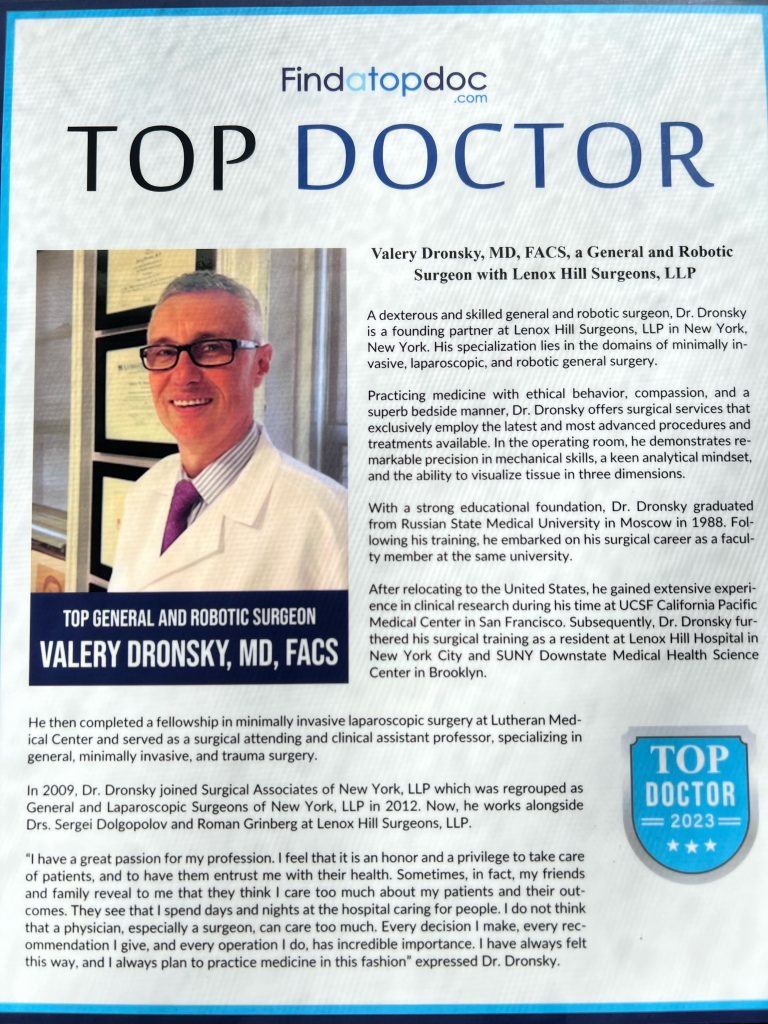


Visit our main website at www.LenoxHillMinimallyInvasiveSurgery.com
Blog Posts are Below:
Tag Archives: Colon Surgery
Colon Surgery: Exploring Procedures for Colon Conditions
In this article, we will explore different procedures for colon conditions and their importance in restoring health and well-being. The colon, also known as the large intestine, plays a vital role in the digestive process. However, various conditions can affect the colon, such as colon cancer, diverticulitis, and inflammatory bowel disease. When conservative treatments fail to provide relief or manage these conditions effectively, colon surgery may be necessary. At Lenox Hill Minimally Invasive Surgery, a leading general surgery practice in New York City, our team of expert surgeons specializes in a range of colon surgeries.
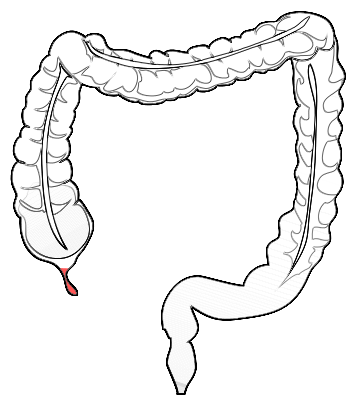
Procedures for Colon Conditions
1. Colectomy: Removing Diseased Portions of the Colon
Colectomy is a common surgical procedure that involves the removal of diseased portions of the colon. It is often performed to treat conditions such as colon cancer, ulcerative colitis, or Crohn’s disease. During a colectomy, the surgeon carefully removes the affected segment of the colon and reconnects the remaining healthy portions. In some cases, a temporary or permanent colostomy may be necessary to redirect waste through an opening in the abdominal wall.
2. Colostomy: Creating an Opening in the Abdominal Wall
Colostomy is a surgical procedure in which an opening is created in the abdominal wall, allowing waste to bypass the lower part of the colon and exit the body. It is typically performed when the lower part of the colon or rectum is removed or bypassed, as in cases of rectal cancer or severe inflammatory bowel disease. A colostomy may be temporary or permanent, depending on the specific condition and treatment plan. It requires the use of a colostomy bag to collect waste, which can be emptied or replaced as needed.
3. Robotic-Assisted Colon Surgery: Precision and Enhanced Recovery
Robotic-assisted colon surgery is an advanced minimally invasive technique that utilizes robotic technology to assist the surgeon during the procedure. It offers several advantages, including enhanced precision, improved visualization, and smaller incisions. The robotic system allows for greater dexterity and maneuverability, facilitating intricate surgical tasks with greater accuracy. Patients who undergo robotic-assisted colon surgery often experience faster recovery, reduced pain, and a shorter hospital stay compared to traditional open surgery.
4. Laparoscopic Colon Surgery: Minimally Invasive Approach
Laparoscopic colon surgery, also known as keyhole surgery, is a minimally invasive procedure that utilizes small incisions and specialized surgical instruments. The surgeon inserts a laparoscope, a thin tube with a camera, through one of the incisions to visualize the surgical area. Additional instruments are inserted through the other small incisions to perform the surgery. Laparoscopic colon surgery offers several benefits, including reduced post-operative pain, shorter recovery time, and minimal scarring.
Expert General Surgical Services at Lenox Hill Minimally Invasive Surgery
At Lenox Hill Minimally Invasive Surgery, we understand the importance of personalized care and expertise when it comes to colon surgery. Our team of experienced general surgeons is committed to providing exceptional surgical services, utilizing advanced techniques and innovative technology. We prioritize patient well-being, ensuring comprehensive evaluations, tailored treatment plans, and compassionate care throughout the surgical journey.
Contact us today to schedule a consultation with our renowned surgeons:
Contact Information:
LENOX HILL MINIMALLY INVASIVE SURGERY
117 E 77th Street
Suite 1A
New York, NY 10075
646-846-1136
admin@lenoxmis.com
Visit our website for more information: https://lenoxhillminimallyinvasivesurgery.com/
Colon Surgery for Cancer Patients
Colon cancer is a disease that affects many people, and there are a number of ways in which treatment is administered for this type of cancer. One of the most common treatments for colon cancer is surgery, particularly if the cancer is still in its very early stages. In this case, the colon surgery may be performed in order to remove the tumor, which may require part or the colon along with the lymph nodes to be removed. The latter is because the cancer will usually spread to the lymph nodes first, which is why they may be removed as part of the colon surgery.
The decision with regards to surgery and the type of surgery required will be based on a number of factors such as what stage the cancer is at, whereabouts it is located, and whether it has spread to other parts of the body. In addition, the surgeon will also need to take your age and general health into consideration when making a decision with regards to colon surgery. This procedure is performs by a specialist surgeon with expertise in bowel cancer and colon surgical procedures.
How is the operation performed?
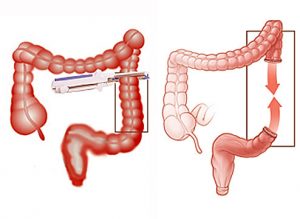 The process through which the surgery is performed will depend on a range of factors. When your doctor carries out tests to make a firm diagnoses, he or she will be far better placed to make a decision with regard to your treatment. In some cases, the procedure is carried out as open surgery, which means that you will have to prepare yourself for a lengthy recovery period following the procedure. However, in other cases it may be performed as keyhole surgery, which is less invasive and traumatic. It also means that you do not have to cope with such as long recovery period.
The process through which the surgery is performed will depend on a range of factors. When your doctor carries out tests to make a firm diagnoses, he or she will be far better placed to make a decision with regard to your treatment. In some cases, the procedure is carried out as open surgery, which means that you will have to prepare yourself for a lengthy recovery period following the procedure. However, in other cases it may be performed as keyhole surgery, which is less invasive and traumatic. It also means that you do not have to cope with such as long recovery period.
Additional surgery may also have to be carried out if the cancer has spread to other areas such as the liver or lungs. In these cases, chemotherapy is generally the treatment that is used to try and shrink and control the cancer. However, there may be cases where the surgeon decides upon surgery such as a liver or lung resection based on where the cancer has spread to. Again, this is something that the surgeon will decide upon and discuss with you following diagnosis and assessment.
Speak to one of the best general surgeons in NYC
 If you need advice about colon surgery and what is involved, you can get in touch with us and speak with one of the best general surgeons in New York City. Call us today and we will be happy to arrange an initial consultation
If you need advice about colon surgery and what is involved, you can get in touch with us and speak with one of the best general surgeons in New York City. Call us today and we will be happy to arrange an initial consultation
Contact us at 646-846-1136 to schedule an appointment.
Common Types of Laparoscopic Surgery
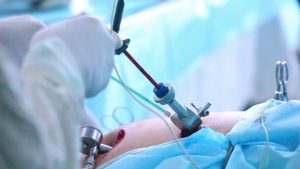 Laparoscopic surgery is a type of minimally invasive surgery in which a number of small incisions are made, around a quarter inch in length each. Using smaller incisions means that patients experience less pain and a shorter recuperation period. Below is a guide to some of the most common types of laparoscopic surgery.
Laparoscopic surgery is a type of minimally invasive surgery in which a number of small incisions are made, around a quarter inch in length each. Using smaller incisions means that patients experience less pain and a shorter recuperation period. Below is a guide to some of the most common types of laparoscopic surgery.
Colon
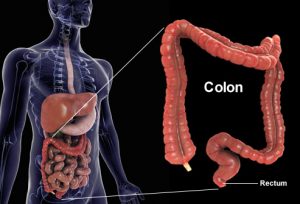 Laparoscopic surgery of the colon requires four or five small incisions of around a quarter inch in size. Through these incisions, the surgeon uses a fiber optic camera connected to a monitor to see inside the patient and guide the other instruments.
Laparoscopic surgery of the colon requires four or five small incisions of around a quarter inch in size. Through these incisions, the surgeon uses a fiber optic camera connected to a monitor to see inside the patient and guide the other instruments.
Inguinal Hernia Repair
Laparoscopic inguinal hernia repairs are done via a laparoscope, which is fed into small incisions in the abdominal wall. A camera is fed through, as is a tube which allows for the abdominal cavity to be inflated with carbon dioxide. This allows more room for the surgeon to perform the procedure. The hole through which the muscle is protruding is covered with a surgical mesh from within and surgical staples are used to patch it.
Gallbladder Removal
The gallbladder is an organ located on the right-hand-side of the body, just under the rib cage and near the liver. Removal of the gall bladder is one of the most common targets for laparoscopic surgery. The gall bladder stores bile, which is used to assist in the breakdown of fatty foods. When we don’t eat for extended periods, such as during sleep, the gallbladder stores the bile ready to release it when it’s needed.
Laparoscopic gallbladder removal involves four small incisions in the abdomen, whereas in open surgery a five- to seven-inch incision is required. With laparoscopic surgery, surgical instruments and a camera are fed into the incisions in order to make the necessary cuts at various points around the organ.
Advantages of Laparoscopic Surgery
 Laparoscopic surgery is much less painful for patients in the immediate aftermath of their surgery and in some cases, they are even able to go home on the same day. The overall recuperation period is much shorter than it is for open surgery and the incidence of complications is lower. Laparoscopic surgery also causes very little cosmetic damage when compared with open surgery and for some patients, this is very important.
Laparoscopic surgery is much less painful for patients in the immediate aftermath of their surgery and in some cases, they are even able to go home on the same day. The overall recuperation period is much shorter than it is for open surgery and the incidence of complications is lower. Laparoscopic surgery also causes very little cosmetic damage when compared with open surgery and for some patients, this is very important.
Laparoscopic surgery of the colon, hernia repair, gallbladder removal, and many other forms of minimally invasive surgery are available at our clinic. Drop by for a consultation.















